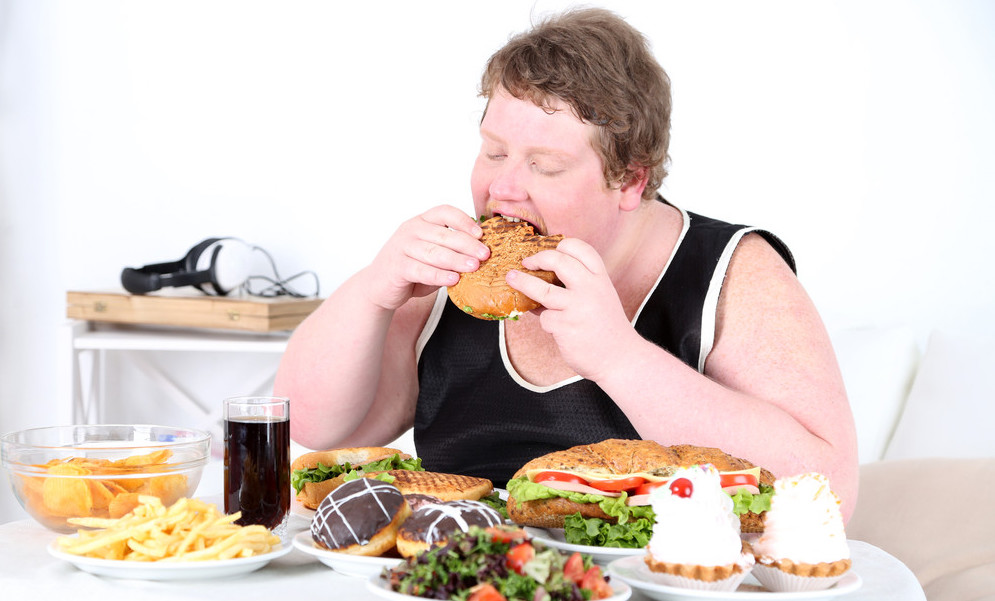Eating disorders are seen at first glance as a condition that involves food and excessive occupation with weight, but they are, in fact, quite complicated disorders that consist of long-term psychological, physiological, and social conditions. Individuals with eating disorders often use foods or their control over foods to deal with their emotions. The desire for intense control can lead an individual to behaviors. It aims to form a control mechanism over their body, and these behaviors create obstacles that are both physiological and psychological.
There are many psychological, interpersonal, and social issues underlying eating disorders. Research shows that factors such as low self-confidence, depression, loneliness, difficulty in expressing emotions, and physical or sexual assault are prominent reasons. It is inevitable for some individuals to become obsessed with their bodies, especially when the media equates being thin with being beautiful, and societies place greater value on physical appeal than on inner beauty. However, not all individuals exposed to these factors will develop eating disorders. Saying that eating disorders develop in all individuals who are exposed to these factors would be misleading, of course. Psychological and genetic predisposition, family structure, social environment, and traumatic experiences constitute an important part of this condition.

Anorexia Nervosa
Anorexia nervosa is characterized by having a markedly low body weight based on the individual's age, gender, and developmental status. Despite this low body weight, individuals with anorexia nervosa tend to:
- Have an extreme fear of gaining weight.
- See themselves as having extra weight even though they do not
- Give excessive importance to weight when evaluating themselves.
- Show continuous behaviors that make it difficult to gain weight (refusing to eat to the point of starvation, excessive exercise, vomiting, using laxatives, etc.)
These are some of the prominent symptoms of Anorexia nervosa.
Anorexia not only manifests itself as a restriction of what a person eats but also by purging after periods of overeating.
Patients with anorexia feel an intense fear of being fat and gaining weight. They show great interest in body shapes and an intense desire to avoid gaining weight. In anorexia nervosa, it is very common to see menstrual losses due to this excess weight loss.

Bulimia Nervosa
The patients show compensatory behaviors (avoid eating, vomiting, using laxatives, excessive exercise ...) after recurring binge eating periods. This situation gradually becomes a vicious cycle and individuals find themselves unable to get out of this position.
Binge eating is eating an unusually large amount of food in a short period of time. During this period, the most prominent feature is the loss of control over eating habits. After this period, individuals show compensatory behaviors to prevent weight gain (self-induced vomiting, using laxatives, excessive exercise…). Again, the self-evaluation of the individual shows a very close relationship with their weight.
At first, individuals think that they can get out of this cycle on their own and may not even see themselves as being sick. They believe that it will pass over time. However, expert support becomes necessary when they realize that this situation has gotten out of control.

Binge-Eating Disorder
Binge-eating disorder is very similar to Bulimia nervosa. However, behaviors such as self-induced vomiting, laxative use, and excessive exercise after binge eating are not observed in binge-eating disorder. Binge-eating periods are characterized by:
- Eating faster than usual.
- Eating to the point of gastric discomfort.
- Feeling self-disgust, depression, and guilt after this period.
- Eating excessively when not feeling hungry.
- Eating secretly due to feeling ashamed.
The disorders mentioned above are some of the most common eating disorders. There are also categories of eating disorders that are less common.
- Pica is characterized by an appetite for non-nutritive substances for at least one month.
- Rumination disorder is a condition in which a person regurgitates the food they have eaten voluntarily for a period of at least one month.
- Restrictive food intake disorder is characterized by restriction of food intake to a level that prevents a person from eating enough nutrients, disinterest in foods or eating, avoiding the sensory properties of food (e.g smell), anxiety about the unwanted consequences of eating.

Night Eating Syndrome
Night eating syndrome is characterized by eating in the middle of the night or excessive eating after dinner. Individuals with this disorder might have reduced appetites in the morning due to excessive eating the night before, and they might try to reduce the amount they eat during the day, knowing they are going to consume excessive amounts of food at night. Sleep problems are common, especially for the patients who wake up during the night to eat. This condition decreases the sleep quality of the person and causes them to be in a more depressed mood during the day. They may also experience a significant decrease in their daily life functionality.
How Do I Know If I Have an Eating Disorder?
- Do you often think about your weight, your body shape, or food?
- Do you try to restrict the amount you eat to lose weight, or do you stop eating for long periods?
- Does your overthinking on food and calories often affect your concentration on other issues in daily life?
- Do you feel a desire to have an empty stomach or a completely flat stomach to lose weight?
- Do you have any fears about losing control of overeating or gaining weight?
- Are there times that the amount of food you eat is more than most people can eat and do you feel that you have lost control at such times?
- Do you often feel overweight?
- Do you have a strong desire to lose weight?
- Does your weight affect your thoughts about yourself too much? (For example, “If I am thin, I feel successful and beautiful, but if I eat more than I want and gain weight, I feel unsuccessful and ugly.”)
- Do you vomit, use laxatives and exercise excessively to prevent weight gain after eating too much?
- Do you hide from other people to eat?
- Does it upset you to weigh yourself on a scale?
- Do you feel guilty because you eat a lot and think you will gain weight?
- Do you feel uncomfortable when other people see your body?
If these questions seem familiar to you, or if you often encounter these conditions in your own life, you may have an eating disorder. If you suspect that you do, seek help from a qualified medical professional.
Risk Factors of Eating Disorders

Negative Body Image
Body image is a person's feelings about their own body and how they see themselves. If a person has a negative image of their body, they see their bodies differently from how they are, feel ashamed of their own body, and may give extreme importance to the thoughts of others. A negative body image is a very common risk factor for eating disorders. Anorexia patients especially tend to perceive themselves as overweight. Their perception of their bodies does not reflect the truth. Bulimia patients generally perceive their bodies as they are, but show a high level of dissatisfaction towards them. They constantly make negative judgments about their bodies.
Socio-Cultural Factors
With the widespread idealization of beauty in the media, many people have increased awareness about their bodies. The comments of relatives, friends, and partners about weight gain and loss can have devastating effects on individuals. All of these factors may contribute to the development of eating disorders and play a role in their continuation.

Emotional Factors
Low self-confidence and low perception of self-worth may be some of the causes of eating disorders. Being a perfectionist and having an excessive need for control are also seen as risk factors. These issues not only contribute to eating disorders, but they complicate the treatment as well.
The Family Doctor
There is no one “a family structure that causes eating disorders”, but studies indicate that there is certainly a frame. Some experts claim that children who grow up in families that are overprotective, strict, perfectionist with limited capacity for dealing with problems or have very close or very distant relationships are more prone to develop these illnesses. Taking a close look at family relationships will provide important information about the cause and progression of eating disorders. In addition, family relationships should be a part of the treatment of eating disorders. The family should be involved in the treatment.
Knowledge of family disorders will have a positive effect on the treatment process of the person who is suffering from eating disorders. Otherwise, it will be quite difficult for the individual. They may feel constantly criticized and accused of being the main reason for their illnesses, making it difficult for them to deal with both the disorder and this sense of guilt.

Medical Complications in Eating Disorders
Eating disorders not only cause psychological difficulties but also affect the body of the patient in many ways. Even though these conditions usually improve as the disorder is treated, the recovery of bodily damage is still a very difficult process, especially in chronic cases with long-standing illnesses. Although the disease with the highest death rate among these eating disorders is anorexia, behaviors such as vomiting, binge eating, and using laxatives also have various consequences.
Mouth and tooth problems may occur due to vomiting in some eating disorders. Dental cavities caused by acid due to vomiting are one of the most common issues. Weight loss, vomiting, and the use of laxatives increase the possibility of heart problems. One of the most common conditions is digestive system problems. We can observe symptoms such as celiac, irritable bowel syndrome, nausea, vomiting, diarrhea, bloating, and constipation. Amenorrhea (the absence of a menstrual period) in women is a common issue, especially in anorexia. Conditions such as fatigue, weakness, and energy loss are also quite common. It is very important to talk with the patient about these problems as they can be overcome by healthy weight gain and proper nutrition.
Treatment of Eating Disorders
A multidisciplinary team should deal with the treatment of eating disorders. The internal diseases specialist deals with the physical part of the disorder. In addition to treating the deficiencies in the body, they have an important role in detecting the damage caused by the disease. The psychiatrist can diagnose the disease and recommend treatment options, including condition-specific drug therapy. It is very important to start a therapy process with a clinical psychologist who specializes in the field of eating disorders.
The goal of therapy is to provide the necessary help to make it easier for the patient to deal with the eating disorder rather than eliminating it. Follow-up with dietetic professionals at the beginning of the disease is not always effective. They help add the nutrients that the body needs to the diet to reverse the damage caused by anorexia. Regular meals are planned in bulimia and binge eating disorder. These treatments take place simultaneously, not consecutively. Treatment plans are prepared with the cooperation of all these disciplines and according to the needs of the patient.











